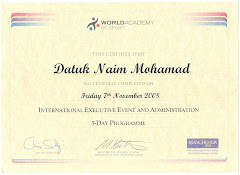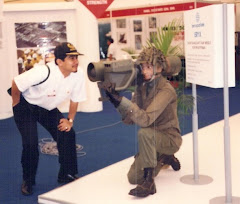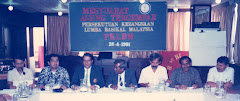Stage 3 - Monday, July 7: Saint-Malo - Nantes, 208km
French fantasy: Dumoulin with win and Feillu yellow
By Gregor Brown in Nantes, with additional reporting by Hedwig Kröner
 |
The Tour de France was treated to a local delight in stage three to Nantes thanks to a four-man escape that produced a stage win by Samuel Dumoulin and new overall leader Romain Feillu. The move that formed at kilometre zero – including USA's William Frischkorn and Italy's Paolo Longo Borghini – concluded the rainy and blustery 208-kilometre stage through France's Brittany with 2'03" on former-race leader Alejandro Valverde's group.
"We got into a good break and we really worked well all day to stay away," stated 27 year-old Dumoulin of Team Cofidis. "It is really a fantastic experience."
Overall classification favourites Italian Riccardo Riccò (Saunier Duval-Scott) and Russian Denis Menchov (Rabobank) lost time in the technical arrival to the likes of Valverde, Evans, Sastre and Cunego. Strong winds and a crash forced a split that put their teams to work to limit a gap that counted 38 seconds ton the main GC group in Nantes.
"Perhaps you journalists don't understand that I am not here for the classification," blasted Riccò after the finish. The 24 year-old, winner of two stages and second overall in the Giro d'Italia, indicated the team's work was all for Juan José Cobo. His maillot blanc of best young rider was lost, passing to Feillu.
The charge to the line was first led by Quick Step and then by Columbia, Crédit Agricole and Liquigas. It was too little too late on a gap that counted 3'05" at ten kilometres remaining. The four escapees were left to fight for the win.
 |
Dumoulin opened the aggressions on his former escape companions when he fired on Rue Sembat, at 1500 metres remaining. Frischkorn bridged and the duo briefly held a lead. Feillu wanted more than just the yellow top. He left his Italian companion behind and immediately attacked when catching the front duo. However, the two came back. Dumoulin succeeded in the three-man sprint over Frischkorn and took his second season win on top of a stage in the Circuit Cycliste Sarthe. Longo Borghini finished 14 seconds back in fourth.
"It was great for the morale and the team, but a stage win would have been cool," confessed 27 year-old Frischkorn, who is a member of one of two USA teams in the Tour de France this year. "I had thought of attacking right when the first attack went [by Dumoulin], but my directeur was in the ear-piece saying, 'Don't pull now, careful of Dumoulin.'"
"I think we started to believe we could make it when we arrived with 25 kilometres remaining," Longo Borghini explained. "It was a dream; it is a dream of every cyclist. Now, I just miss the win."
The work of Longo Borghini and Frischkorn was shuffled to the side by the French stampede following the stage finish in Nantes. While Dumoulin was busy displaying French amour with his fiancee, Team AG2R La Mondiale Vincent Lavenu's daughter, Feillu was being ushered to the podium presentation and the famous maillot jaune.
"I had toxoplasmosis this spring and it really messed me up," Feillu explained, exhausted, on the Quai de la Fosse finishing straight. The problems were quickly forgotten as he neared the podium to be presented the race leader's jersey. "It is great to take the maillot jaune."
He faces a strong possibility of losing the top in tomorrow's 29.5-kilometre time trial. He admitted, "I don't know if I can keep the jersey. 1'52 is not a lot on a strong rouleur like Cancellara."
 |
The charge behind the four turned into a test run for Wednesday's stage to Châteauroux and a chance at maillot vert points. Australia's Robbie McEwen zapped ahead despite a Silence-Lotto team that is dedicated to Cadel Evans' GC campaign. The 36 year-old multiple Tour de France stage winner topped birthday boy Erik Zabel (Team Milram), Oscar Freire (Rabobank), Thor Hushovd (Crédit Agricole), Robert Förster (Gerolsteiner) and Mark Cavendish (Columbia).
"I knew that once they were out to 15 minutes we weren't going to catch the escape because the teams built around the other sprinters just didn't start chasing in time," evaluated McEwen. "When they did start chasing it was not enough and we came up way too short.
"When we turned into that last cross-tail-wind section all hell broke loose," continued McEwen. He was the last one of the riders to make it across to the leading group as it charged to the line. Additionally, he noted that first in the bunch sprint was a good consolation and a indicator that he is riding well. "I went from a fair way out and held everyone off."
Columbia's man for the sprint, Mark Cavendish, came close to his rival despite battling winds along the Brittany roads. "The group split into three pieces," he noted of the gusts. Cavendish added that the group did not have a chance at catching the four and so the team did not put full gas into the chase.
Luxembourg's Kim Kirchen (Columbia) continues to carry the green top.
How it unfolded
 |
The start in Saint-Malo was taken at 12:31. 179 riders still remained in the Tour, as the only retiree so far was Hervé Duclos-Lassalle, who crashed out in the feed zone of stage one. Stéphane Goubert sustained a broken rib in a crash during stage two but was at the sign-on for stage three. Barloworld rider Mauricio Soler also took the start despite the pain in his hand.
In the second kilometre, four riders attacked and stayed clear right away: US talent William Frischkorn (Garmin Chipotle - H30), Italian Paolo Longo Borghini (Barloworld), Frenchman Romain Feillu (Agritubel) and his compatriot Samuel Dumoulin (Cofidis). The quartet had built a lead of 1'40 minutes at the five-kilometre mark already.
The four collaborated well and quickly extended their advantage. The sprinters' teams let them go, firmly believing that the flat parcours, the cross wind gusts and the scattered showers would make it easy to reel them back in sometime in the last kilometres.
But the leaders proved them wrong. The maximum gain of the escape was 14'50 when the peloton was at the 64-kilometre mark. Shortly before that, Gerolsteiner' Fabian Wegmann crashed, but was able to move on.
Columbia sent some riders to the front and started a chase. They were joined by some Crédit Agricole and Liquigas riders a few clicks later, and the gap started to melt. Everything looked fine for the sprinters at this point. At kilometre 103, the time deficit was 9'50.
But the peloton hadn't counted in the determination of the breakaway. The quartet still worked together flat out and believed in its chances. As the pace of the chase began to pick up in the third hour of racing, the average speed increased from 35.1 km/h during the second hour to 38.2 km/h.
With 57 kilometres to go, some protesters blocked the road of the Tour. The break was a little delayed, but as the bunch came through 6'55 later, they could pass without stopping. Tour director Christian Prudhomme's intervention calmed down the protesters.
 |
The average speed for the fourth our was 43.3km/h. FDJ and Bouygues Telecom also engaged in the chase. But 32 kilometres away from the line, the gap had only diminished by about one minute, to 5'50. It could have still been do-able for the sprinters, but the lead group dug in so deep that a moment of hesitation amongst the chasers turned out to be fatal. Also, the last 30 kilometres of the course provided a more favourable wind for the break.
A crash with 23 kilometres to go took down Nicki Sørensen (CSC-Saxo Bank), Ángel Gómez (Saunier Duval-Scott) and Matthieu Sprick (Bouygues Telecom). The Dane and the French could continue the race, while the Spaniard had to be transported to hospital.
After the accident, the peloton split into three groups. The Quick Step team seized the opportunity to set a furious pace at the front of the peloton.
In the second group, GC contender Denis Menchov (Rabobank) and climber Riccardo Riccò (Saunier Duval-Scott) were trapped. The first bunch still included yellow jersey Alejandro Valverde (Caisse d'Epargne) and Tour favourite Cadel Evans (Silence-Lotto). They had about 15 seconds on the second group, with the third group 35 seconds back.
And even if Quick Step and Liquigas now really put on a tempo, the leaders could start to believe in their chances as the gap was still 3'40 with 15 kilometres to go. The two chase groups behind now mainly tried to limit their losses, but knew that a bunch sprint was impossible at this point. Under the 10-kilometre mark, the Menchov/Riccò group was 40 seconds behind the yellow jersey group, still more than three minutes behind the leaders.
Feillu was the best-placed rider of the escape group on GC and could look forward to wearing the yellow jersey in the evening. Still, he attacked from behind Longo as Dumoulin took off with 1500 metres to go, taking with him Frischkorn. Feillu came back on them like a rocket and passed them impressively. But in the end, he may have started his violent effort a little too soon, as Dumoulin was able to catch him 500 metres before the line. And the Cofidis rider pulled through, with Feillu desperately trying to come back. Frischkorn, on his wheel, finally passed the Frenchman and took second behind Dumoulin, the smallest rider in the peloton, for whom it was the first Tour de France victory.






















No comments:
Post a Comment